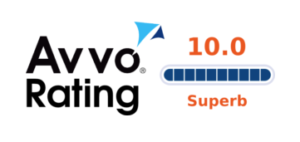



Understanding The UNUM Disability Appeal Process
 Imagine receiving an unexpected denial from Unum for your long-term disability claim. Then, you are suddenly dragged into the complicated yet crucial job of navigating the Unum Disability Appeal process to reclaim your rightful benefits. Unum, one of America’s largest and most profitable insurance companies, provides a wide range of services, including long-term disability insurance. However, it has also been the subject of numerous nationwide investigations into alleged unfair practices, particularly wrongful claim denial. When faced with such a situation, your understanding of the appeals process becomes a critical tool for effectively challenging the denial.
Imagine receiving an unexpected denial from Unum for your long-term disability claim. Then, you are suddenly dragged into the complicated yet crucial job of navigating the Unum Disability Appeal process to reclaim your rightful benefits. Unum, one of America’s largest and most profitable insurance companies, provides a wide range of services, including long-term disability insurance. However, it has also been the subject of numerous nationwide investigations into alleged unfair practices, particularly wrongful claim denial. When faced with such a situation, your understanding of the appeals process becomes a critical tool for effectively challenging the denial.
Understanding the Types of Disability
A thorough understanding of Unum’s disability coverage is an essential first step in the Unum Disability Appeal process. Unum’s policies cover a wide range of disabilities, which are broadly classified into two categories.
Physical Disability is the first category. This category includes any condition that impairs a person’s physical functionality, mobility, dexterity, or endurance. This category includes everything from spinal cord injuries and musculoskeletal disorders to respiratory and cardiovascular diseases.
Mental Health Disability is included in the second category. Conditions that affect a person’s cognitive processes, emotions, behavior, and overall mood are included. This category includes conditions ranging from depression and anxiety disorders to bipolar disorder and post-traumatic stress disorder (PTSD).
Each of these disability types presents its unique set of challenges when initiating a claim or appeal.
Unum’s Disability Insurance Policies
Unum offers long-term disability insurance policies through various group companies, including Paul Revere and Provident. These policies are designed to provide financial support in the event of a disabling illness or injury that prevents you from working. However, many policyholders have found their claims denied by Unum without sufficient grounds.
Reasons for Claim Denial
Unum may deny your disability claim for various reasons. These can include insufficient medical evidence supporting your disability and restrictions, the opinion of medical or vocational experts hired by Unum stating that you are not truly disabled, or policy exclusions for your specific medical condition. It’s important to remember that a denial letter from Unum may be incomplete, misleading, or outright wrong, and you should not accept it at face value.
Case Summary: Customer Service Rep with Migraines Wins Unum Disability Appeal
The case involves a client who worked as a customer service representative from home for a financial investment firm. She suffered from severe migraines, which led to her filing for short-term and long-term disability benefits with Unum. Initially, Unum approved her long-term disability benefits for approximately eight to nine months. However, Unum later denied her claim based on a review by an in-house doctor, who concluded there was insufficient objective evidence of impairment, citing the subjective nature of migraines.
Read Full Case Summary Here...
The case involves a client who worked as a customer service representative from home for a financial investment firm. She suffered from severe migraines, which led to her filing for short-term and long-term disability benefits with Unum. Initially, Unum approved her long-term disability benefits for approximately eight to nine months. However, Unum later denied her claim based on a review by an in-house doctor, who concluded there was insufficient objective evidence of impairment, citing the subjective nature of migraines.
Attorney Stephen Jessup and his team challenged Unum’s denial by building a robust appeal. Key steps included:
Collaborating with the client’s doctor, who provided supportive attending physician statements.
Having the client maintain a detailed headache log to document the frequency and severity of her migraines.
Making legal arguments that subjective complaints, when verified by a doctor, should be considered objective clinical evidence, supported by relevant case law.
Requesting an Independent Medical Examination (IME) by a neurologist, as opposed to Unum’s initial suggestion of a physiatrist. This was a strategic move, as Jessup believed Unum was likely to deny the claim regardless, and an IME by a practicing neurologist offered a chance for a fair assessment.
The IME was conducted by a practicing neurologist, who found the client’s complaints credible and determined that her migraines significantly impaired her ability to work. Within a week of the IME, Unum reversed its decision and approved the client’s benefits. Additionally, the IME doctor recommended further treatment options, potentially opening avenues for the client to seek specialized care for her migraines and related sleep issues.
The attorneys criticized Unum’s reliance on in-house doctors for claim reviews, highlighting the inherent bias in such processes, as these doctors are salaried employees incentivized to deny claims. They noted that Unum’s “roundtable” discussions during appeals often lead to groupthink, further skewing decisions against claimants. The success of this case hinged on the strategic decision to push for an IME by an independent, practicing doctor, which provided the objective assessment Unum claimed was lacking. The attorneys emphasized that requesting an IME is a case-by-case decision, as an unfavorable IME report could strengthen an insurance company’s position in court. In this instance, the approach was a “Hail Mary” that paid off, securing a significant victory for the client.
The Unum Disability Appeal Process
If your disability claim has been denied by Unum, you have the right to appeal this decision. The Unum Disability Appeal process involves several key steps:
- You have 180 days from the receipt of the denial letter to file an appeal with Unum.
- You should draft a detailed appeal in writing, ideally with the help of an experienced long-term disability attorney.
- Once your appeal is submitted, Unum will take up to 45 days to review it. They may also request an additional 45-day extension.
- After reviewing your appeal, Unum will issue its decision.
Strengthening Your Unum Disability Appeal
For a successful Unum Disability Appeal, it’s essential to compile and present persuasive evidence. This evidence can encompass:
- Comprehensive Medical Records: These should encapsulate all pertinent medical examinations, treatments, and notes from your doctor. It’s also advantageous to have your physician draft a letter outlining your condition and its impact on your ability to work.
- Personal Narratives: Craft a thorough description of your daily life, emphasizing the constraints and challenges you encounter due to your disability. This narrative can help illustrate the reality of your situation.
- Testimonials: Statements from friends, family members, and colleagues can offer additional perspectives on your condition and its effect on your life.
- Reports from Vocational Experts: These reports can offer an unbiased assessment of your capacity to work, considering your medical condition, educational background, skills, and labor market factors.
Unum Appeal FAQ’s
What is the process for appealing a Unum insurance claim denial?
Appealing a Unum insurance claim denial involves several steps. First, review the denial letter to understand the reason. Gather supporting documents, such as medical records or expert opinions, to strengthen your case. Submit a written appeal to Unum within the specified timeframe, typically 180 days. Include a detailed explanation of why the denial was incorrect. Unum will review the appeal and respond, usually within 45 days. If denied again, you may pursue further appeals or legal action. Consulting an attorney specializing in insurance claims can improve your chances of success.
How long does a Unum appeal take to process?
The Unum appeal process typically takes 45-90 days, depending on the complexity of the claim. After submitting your appeal, Unum has 45 days to review and respond, as mandated by federal regulations. For complex cases or if additional information is requested, this may extend to 90 days. To expedite the process, ensure all required documents, like medical records or supporting statements, are included upfront. If the appeal is urgent, you can request an expedited review. Always track deadlines and follow up to avoid delays in the decision. CLICK HERE to learn more.
What documents are needed for a successful Unum appeal?
A successful Unum appeal requires comprehensive documentation. Include the denial letter, medical records, and physician statements supporting your claim. Provide a detailed personal statement explaining your condition and its impact. Employment records, such as job descriptions or performance reviews, can demonstrate work limitations. Expert opinions, like vocational assessments, strengthen your case. Ensure all documents are organized, dated, and relevant to the claim. Submitting incomplete or vague documentation may lead to delays or denial. Consulting an attorney can help identify and compile the most compelling evidence for your appeal.
Can I appeal a Unum denial without a lawyer?
Yes, you can appeal a Unum denial without a lawyer, but it’s challenging. Review the denial letter to understand the reasons, then gather supporting evidence like medical records and personal statements. Submit a clear, detailed appeal within the 180-day deadline. However, Unum’s process is complex, and legal expertise can improve your chances by ensuring proper documentation and addressing legal nuances. Without a lawyer, you must thoroughly understand policy terms and regulations. If the appeal is denied, consider legal counsel for further steps, such as filing a lawsuit. Learn more on how to appeal HERE.
Why was my Unum claim denied?
Unum claims are often denied due to insufficient medical evidence, policy exclusions, or missed deadlines. The denial letter may cite lack of documentation proving disability or that your condition doesn’t meet policy criteria. Other reasons include discrepancies in medical records or failure to follow treatment plans. Sometimes, Unum may argue the condition is pre-existing or not covered. Review the denial letter carefully to identify the specific reason. Gathering stronger evidence, like detailed medical reports or expert opinions, and addressing Unum’s concerns in your appeal can help overturn the denial.
How many times can I appeal a Unum denial?
Unum typically allows one formal appeal per claim denial, as outlined in their process and federal ERISA regulations. You must submit this appeal within 180 days of the denial notice. If the appeal is denied, you may request a voluntary second appeal in some cases, though Unum isn’t obligated to grant it. If both appeals fail, your next step is usually filing a lawsuit in federal court. Consulting an attorney can help determine if additional appeals or legal action is viable, ensuring you meet all deadlines and requirements.
What happens if my Unum appeal is denied?
If your Unum appeal is denied, you have options. First, review the denial letter to understand the reasons. You may request a voluntary second appeal, though Unum isn’t required to accept it. Alternatively, you can file a lawsuit in federal court under ERISA regulations, typically within one year of the final denial. Gather all prior documentation and consult an attorney specializing in insurance disputes to assess your case. Legal action can challenge Unum’s decision, but it requires strong evidence and adherence to strict deadlines to succeed.
How can I improve my chances of winning a Unum appeal?
To improve your chances of winning a Unum appeal, submit comprehensive evidence, including detailed medical records, physician statements, and vocational assessments. Write a clear, detailed personal statement explaining your disability’s impact. Meet the 180-day appeal deadline and address the specific reasons for denial outlined in Unum’s letter. Avoid vague or incomplete submissions. Consulting an attorney with experience in Unum appeals can help craft a strong case, navigate policy language, and anticipate Unum’s arguments. Regularly follow up with Unum to ensure your appeal is processed promptly. CLICK HERE to learn more on winning an appeal.
Does Unum have a history of wrongful claim denials?
Unum has faced criticism for wrongful claim denials, particularly in disability insurance cases. Investigations and lawsuits in the 2000s revealed patterns of denying valid claims to cut costs, leading to regulatory scrutiny and settlements. While Unum has since reformed some practices, claimants still report challenges with denials based on insufficient evidence or policy misinterpretations. Reviewing your denial letter and gathering robust documentation can counter these issues. Consulting an attorney familiar with Unum’s history can help address potential bad-faith tactics and strengthen your appeal.
Can I sue Unum if my appeal is denied?
Yes, you can sue Unum if your appeal is denied, typically under ERISA regulations for employer-sponsored plans. You must file the lawsuit in federal court, usually within one year of the final denial. Gather all documentation, including the denial letter, appeal submissions, and medical records, to support your case. An attorney specializing in insurance litigation can help prove Unum’s decision was arbitrary or incorrect. Be aware of strict deadlines and legal requirements. A successful lawsuit may result in benefits being awarded or further negotiation with Unum.
Meet Our Unum Appeals Attorneys
Frank N. Darras, Founding Partner
- Experience: Over 30 years taking on Unum in long-term disability and care litigation.
- Track Record: Recovered nearly $1 billion for clients wrongfully denied by Unum.
- Awards & Recognition: Named to Lawdragon’s Top 500 Lawyers in America for 18 years, Best Lawyers in America since 2006, and a leading voice on ERISA and disability law.
Susan B. Grabarsky, Senior Trial Attorney
- Experience: Represents individuals and groups, using her past as an insurance cost-containment analyst to outsmart Unum’s denial tactics.
- Track Record: Turns insider knowledge into victories, ensuring Unum pays valid claims.
- Awards & Recognition: Known for aggressive advocacy against Unum’s unfair practices.
Heather Gardner, Senior Associate
- Experience: Specializes in ERISA and individual disability appeals against Unum.
- Track Record: Works with Frank Darras to unravel Unum’s complex denials, securing benefits for clients.
- Awards & Recognition: Respected for her precision in challenging Unum’s wrongful denials.
Phillip S. Bather, Associate Attorney
- Experience: Expert in bad-faith and ERISA cases, handling intakes and appeals against Unum.
- Track Record: Builds compelling cases to reverse Unum’s unjust claim denials.
- Awards & Recognition: Valued for his dedication to clients facing Unum’s resistance.
Trusted Legal Credentials
- AV Preeminent® Rated – Martindale-Hubbell
- Best Lawyers in America – Disability Law
- Lawdragon 500 Leading Plaintiff Lawyers
These badges represent our decades-long commitment to ethical, top-tier legal representation.
Choosing The Right UNUM Disability Appeal Attorney
Contesting a denial from Unum can be a daunting and stressful ordeal. However, with a thorough understanding of the Unum Disability Appeal process and the assistance of the right legal counsel, you can contest their decision and secure the benefits you are entitled to. Remember, a denial is not the final verdict – it’s merely the start of your quest for justice.
Getting your way through the intricacies of the UNUM process can feel daunting, but it’s critical to remember that you’re not alone. You can successfully navigate this difficult terrain with the right guidance and support. Our UNUM disability lawyers can help you. As you embark on this journey toward justice, keep in mind that each step you take brings you one step closer to obtaining the benefits you are entitled to. It is a journey that requires patience, resilience, and determination. But with the right strategy and resources it can result in a successful outcome.
Disclaimer: This page is for informational purposes only and does not constitute legal advice. Every claim is unique. Prior outcomes do not guarantee future results. For advice specific to your situation, consult with a licensed attorney.






